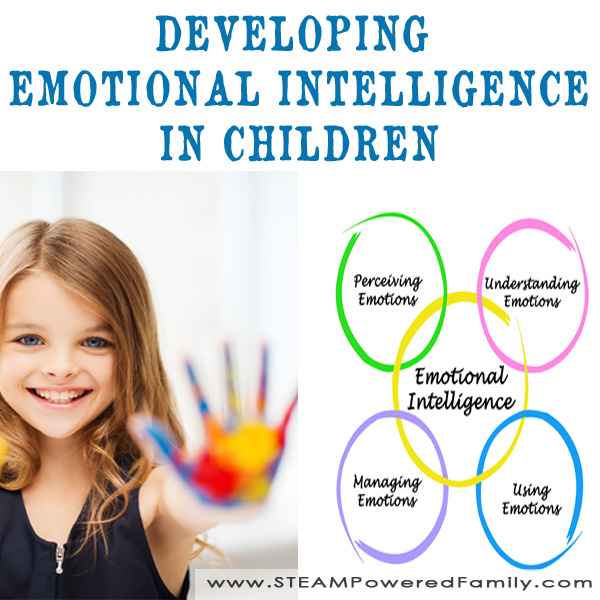The Complete Guide to Emotional Intelligence in Children
Why Emotional Intelligence is the Most Important Skill for Children in 2025
In today's rapidly changing world, emotional intelligence (EI) has emerged as the most crucial skill for children's success. Research shows that children with higher emotional intelligence perform better academically, have stronger relationships, and develop greater resilience to face life's challenges.
Studies reveal that emotional intelligence accounts for 58% of job performance in all types of careers, making it more important than IQ for long-term success.
:max_bytes(150000):strip_icc()/tips-for-raising-an-emotionally-intelligent-child-4157946_final-b7c5dc63060d4a55aadaf838520b3df1.png)
Understanding Emotional Intelligence in Children

Emotional Intelligence refers to a child's ability to understand, manage, and express emotions effectively. It encompasses four key areas that are crucial for healthy development:
Self-Awareness
Recognizing and understanding their own emotions
Self-Management
Controlling and regulating emotional responses
Social Awareness
Relationship Skills
Building and maintaining healthy relationships
The Incredible Benefits of High Emotional Intelligence
Academic Success
Children with high EI show 11% better academic performance and improved focus in classroom settings.
Better Mental Health
Reduced anxiety, depression, and behavioral problems. Higher self-esteem and life satisfaction.
Stronger Relationships
Better communication skills, empathy, and ability to form lasting friendships and family bonds.
Enhanced Resilience
Better ability to cope with stress, setbacks, and challenges. Faster recovery from difficult situations.
Future Career Success
Better leadership skills, teamwork abilities, and workplace performance in their future careers.
Age-Appropriate Strategies for Developing Emotional Intelligence
Ages 2-5: Building the Foundation
Key Activities:
- Name emotions as they occur ("I see you're feeling frustrated")
- Use emotion cards and picture books to identify feelings
- Practice deep breathing exercises during calm moments
- Model emotional regulation in your own behavior
Sample Phrases:
"I can see you're angry because your tower fell down. Let's take three deep breaths together."
"Your face looks happy! Are you excited about the playground?"
Ages 6-9: Expanding Emotional Vocabulary
Advanced Strategies:
- Teach emotion regulation techniques like the "stop and think" method
- Practice empathy through role-playing different scenarios
- Introduce problem-solving steps for emotional conflicts
- Create emotion journals or mood charts

Ages 10+: Advanced Emotional Skills
Complex Skills Development:
- Discuss complex emotions like disappointment, pride, and guilt
- Practice perspective-taking and understanding others' viewpoints
- Teach conflict resolution and negotiation skills
- Encourage reflection on emotional patterns and triggers
Real-World Applications:
• Handling peer pressure situations
• Managing academic stress and expectations
• Navigating social media and digital relationships
• Preparing for adolescent emotional changes
Daily Practices That Make a Real Difference
Morning Check-ins
Start each day by asking your child how they're feeling and what emotions they anticipate for the day ahead.
Emotion Storytelling
Read books together that explore different emotions and discuss how characters handle their feelings.
Pause Technique
Teach the "STOP" method: Stop, Take a breath, Observe feelings, Proceed with intention.
Gratitude Practice
Share three things you're grateful for each day, focusing on how these make you feel.
Active Listening
Give your full attention when your child shares their feelings, validating their emotions without immediately offering solutions.
Evening Reflection
End the day by discussing emotional highs and lows, and what was learned from each experience.
Top Emotional Intelligence Trends for 2025
1. Technology-Enhanced EI Learning
AI-powered apps and tools are revolutionizing how children learn about emotions. Interactive platforms provide personalized feedback and track emotional development progress.
2. Mindfulness Integration
Schools and parents are incorporating mindfulness practices, meditation apps designed for children, and breathing exercises into daily routines.
3. Neuroscience-Based Approaches
New research on brain development is informing more effective strategies for emotional skill building, focusing on neuroplasticity and critical periods.

Quick Tip for 2025
Combine traditional emotional learning with modern technology. Use apps for tracking moods while maintaining face-to-face emotional discussions.
5 Common Mistakes Parents Make (And How to Avoid Them)
Dismissing "Negative" Emotions
Wrong: "Don't be sad" or "You shouldn't feel angry"
Right: "I can see you're feeling sad. Tell me what happened."
Rushing to Fix Everything
Wrong: Immediately solving problems without letting children process emotions
Right: Allow children to feel their emotions first, then guide them toward solutions
Not Modeling Emotional Intelligence
Wrong: Hiding your own emotions or reacting poorly to stress
Right: Share your feelings appropriately and demonstrate healthy coping strategies
Essential Tools and Resources for 2025
Recommended Apps
- • Headspace for Kids
- • Calm
- • Breathe, Think, Do
- • Smiling Mind
- • Stop, Breathe & Think Kids
Must-Read Books
- • "The Way I Feel" by Janan Cain
- • "In My Heart" by Jo Witek
- • "When Sophie Gets Angry"
- • "The Invisible String"
- • "Glad Monster, Sad Monster"
Interactive Tools
- • Emotion cards and charts
- • Feelings thermometer
- • Mood tracking journals
- • Social stories
- • Role-playing scenarios
Expert Tips for Maximum Impact
Start Early, Stay Consistent
Begin emotional intelligence development as early as 18 months and maintain consistent practices daily.
Use Teachable Moments
Capitalize on real-life situations to discuss emotions rather than only during scheduled "emotion time."
Practice Patience
Emotional development takes time. Celebrate small wins and maintain realistic expectations.
Collaborate with Schools
Work with teachers to ensure consistent emotional learning approaches between home and school.
Your 30-Day Action Plan to Get Started
Assessment & Foundation
- • Observe your child's current emotional patterns
- • Start daily emotion check-ins
- • Introduce basic emotion vocabulary
- • Begin modeling emotional awareness
Skill Building
- • Implement the STOP technique
- • Practice deep breathing exercises
- • Read emotion-focused books together
- • Create emotion identification games
Integration & Growth
- • Evaluate progress and challenges
- • Expand emotional vocabulary
- • Introduce empathy exercises
- • Plan for continued development
Giving Your Child the Gift of Emotional Intelligence
Developing emotional intelligence in your child is one of the most valuable investments you can make in their future. With the strategies, tools, and insights shared in this guide, you're well-equipped to help your child build these crucial life skills.
Remember: Emotional intelligence isn't a destination—it's a lifelong journey of growth and discovery.
Start today, be patient with the process, and celebrate every small step forward. Your child's future self will thank you for the emotional foundation you're building now.
Ready to Transform Your Child's Emotional Future?
Share this guide with other parents who care about raising emotionally intelligent children. Together, we can create a generation of empathetic, resilient, and emotionally aware individuals.




